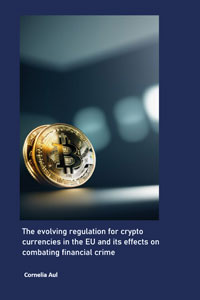Promotie: Europese cryptoregulering onder de loep
Vooral de centralisatie van het toezicht en de verplichting om transparantere informatie te verstrekken, dragen bij aan meer inzicht in de activiteiten en daarmee aan een betere bescherming van klanten tegen illegale praktijken.
Groei cryptomarkten
De opkomst van crypto-activa heeft het financiële systeem de afgelopen jaren ingrijpend veranderd. Deze activaklasse verwierf snel wereldwijde acceptatie vanwege de waargenomen winstkansen, de snelheid van transacties, wereldwijde toegankelijkheid en het ontbreken van tussenpersonen. Hoewel cryptomarkten minder dan één procent van het wereldwijde financiële systeem vertegenwoordigen, is de groei sinds 2009 enorm. Op 30 juni 2024 was de cryptomarkt qua omvang vergelijkbaar met de markt voor doorverkochte risicovolle hypotheken die de wereldwijde financiële crisis van 2007-2008 veroorzaakte.
Risico
Naast het feit dat het een activaklasse is die potentieel hoge rendementen kan genereren, kunnen cryptovaluta ook financiële innovatie en efficiëntiewinst teweegbrengen en daarmee het traditionele financiële systeem revolutioneren. Tegelijkertijd vormt het vermogen om snel en anoniem grensoverschrijdende transacties uit te voeren een risico: fondsen kunnen aan het gereguleerde systeem worden onttrokken en illegale activiteiten kunnen worden bevorderd.
EU-regelgeving
Gezien het voorheen gefragmenteerde juridische kader voor cryptovaluta in de EU-lidstaten en de jarenlang durende discussies over de regulering van een van de meest volatiele activaklassen, was er een groeiende behoefte aan geharmoniseerde EU-regelgeving. Dit resulteerde uiteindelijk in de inwerkingtreding van de Markets in Crypto Assets Regulation (MiCA) in juni 2023. Deze regelgeving beoogt transparantie, uniformiteit en veiligheid te brengen op de cryptomarkten in de hele EU, door de regels van individuele lidstaten te vervangen en duidelijke richtlijnen te geven aan uitgevers van crypto-activa, om zo illegale activiteiten tegen te gaan.
Hedendaagse debat
Het onderzoek van Cornelia Aul biedt een analyse van de effectiviteit van MiCA en het potentieel ervan om de toekomst van de cryptomarkt vorm te geven. Door de impact van deze regelgeving te onderzoeken op rechtszekerheid, marktintegriteit, financiële stabiliteit, het voorkomen van illegale activiteiten en innovatie, levert de studie een bijdrage aan het hedendaagse debat over de regulering van digitale activa en hun rol in het wereldwijde financiële systeem.
Obstakels overwinnen
Aul concludeert dat, hoewel toezichthouders lange tijd terughoudend waren om een snel veranderende activaklasse gebaseerd op nieuwe technologieën te reguleren, het uiteindelijke regelgevingskader toch succesvol is opgesteld. Het reguleringsproces moest vele obstakels overwinnen, met name vanwege de snelle evolutie van technologieën en producten. Het doel van het onderzoek was om te achterhalen welke effecten het veranderde regelgevende landschap in de EU heeft op de cryptovalutamarkt en de marktdeelnemers, met een bijzondere focus op de risico’s van illegale activiteiten en op domeinen die nog ongereguleerd zijn.
Alomvattend kader
Brede EU-initiatieven met betrekking tot de digitalisering van producten zijn essentieel ter ondersteuning van MiCA’s doelstelling om een alomvattend kader voor crypto-activa te realiseren. Aanbevelingen voor verdere versterking van de cryptomarkt zijn onder meer: het opstellen van richtlijnen voor gedecentraliseerde financiële platforms en gespecialiseerde cryptodiensten, verdere regulering van het prudentiële toezicht op cryptovaluta en het bevorderen van wereldwijde samenwerking op regelgevend gebied.
Promotie Cornelia Aul
Cornelia Aul (Paderborn, Duitsland, 1973) is Head of Compliance bij een internationale bank. Zij behaalde een MBA in Finance and Investment, een master in Rechten en een diploma in Bedrijfskunde. Op donderdag 17 april 2025 om 16.00 uur verdedigt zij haar proefschrift 'The evolving regulation for crypto currencies in the EU and its effects on combating financial crime' aan de faculteit Rechtswetenschappen van de Open Universiteit in Heerlen.
Promotoren zijn prof. mr. J.G.J. Rinkes (Open Universiteit) en prof. mr. drs. M.L. Hendrikse (Open Universiteit). Copromotor is dr. M.D.H. Nelemans (Radboud Universiteit Nijmegen).
De verdediging is live bij te wonen bij de Open Universiteit in Heerlen en online te volgen via ou.nl/live.

Gemist? Bekijk de opname
